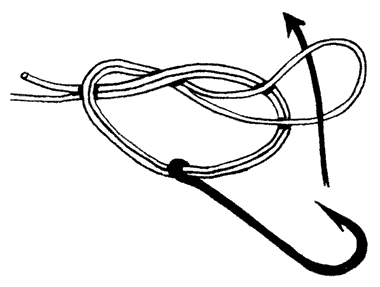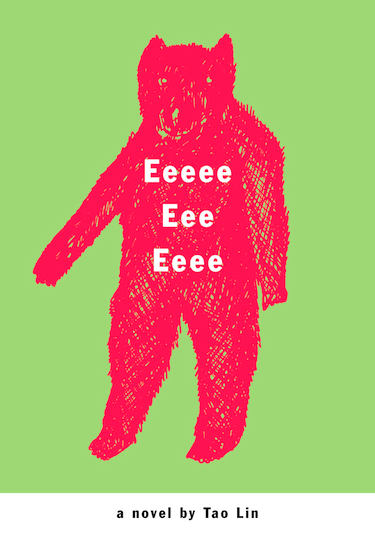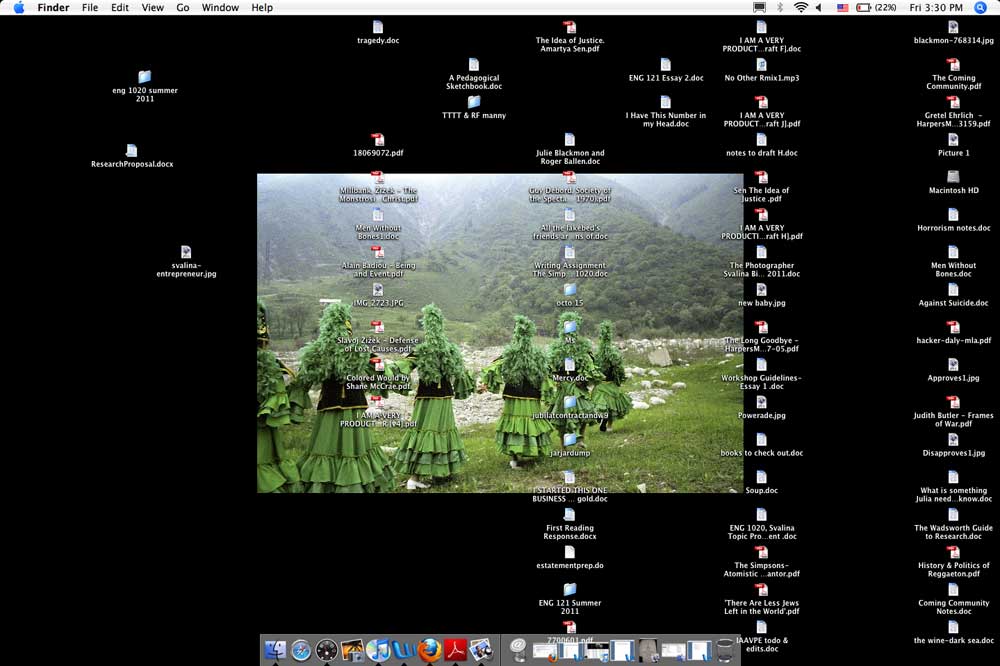Q & A #7
If you have questions about writing or publishing or whatever, leave them in the comments or e-mail them to roxane at roxanegay dot com and we will find you some answers.
1. Do editors pay big attention to gaps with no activity, the way I’ve heard employers do with resumes? Like if you had 3 things published 4 years ago and now nothing and you’re wanting to get back into it.
Notes For Teaching Tao Lin’s Eeeee Eee Eeee
Over the past six weeks, I have been teaching a summer semester undergraduate literature course entitled “Reexamining the Body: Race & Gender in American Experimental Fiction.” After a week of introductory material, we dedicated one week (four days a week) to studying a single novel: Ishmael Reed’s Mumbo Jumbo (1972), Theresa Hak Kyung Cha’s Dictee (1982), Kathy Acker’s Blood and Guts in High School (1978), Salvador Plascencia’s The People of Paper (2005), and Tao Lin’s Eeeee Eee Eeee (2007). Each posed a different set of issues, which allowed us to discuss literature as contagion, as colonization, as assault, as enchantment, and as sedation.
To celebrate the last day of class, I thought I would share with you my notes for Tao Lin’s Eeeee Eee Eeee. These are basically the blueprints for my lectures, or what I use to begin thinking about what I’m going to say in class. In the interest of time, and in the interest of authenticity, I’ve decided not to correct or clean up or organize these notes, but instead share them as they appear in my Word Doc titled “Notes: Tao Lin Eeeeee.” It’s scattershot, sure, but that’s sort of how my brain works.
HTMLGiant Reviews Section

Today is the launch day for our newly formatted reviews section at HTMLGiant, which you can see kicked off below with Maxi Kim’s review of Stewart Home & Matthew Timmons.
Every Monday and Friday of each week we’ll host long formal review of this nature, live at noon. This section will be edited by our new Formal Reviews editor, Janice Lee.
Every Tuesday, Wednesday, and Thursday of each week we’ll be running a new review feature, with anonymously written, shorter reviews. This section will be edited by Anonymous Reviews editor, Brooks Sterritt.
Anyone interested in submitting reviews to either section is encouraged to do so, particularly the anonymous. Feel free as well to query if you would like to write but don’t yet have a book in mind.
Formal reviews should be 800-1500 words and up, and can be sent to Janice at janice [at] htmlgiant [dot] com.
Anonymous reviews should be 300-500 words, have a rating from 0.0-10.0, and can be sent to Brooks at brooks [at] htmlgiant [dot] com.
Obviously in submission your anonymity won’t be possible, unless you want to send from a strange address, but we promise not to tell. This also should not mean, though, that anonymous reviews are designed solely to tear shit up; we simply hope to bypass some of the insular review practices that happen in a community as frequently incestuous as lit. Review submissions are open as of today.
Presses or authors hoping to be reviewed here can send a query, not to the editors, but to reviews [at] htmlgiant [dot] com. Queries sent elsewhere will not be able to be responded to.
As well, all regular reviews will be archived for easy access here (also clickable at the top of this page). We hope in the midst of this to keep a dependable forum for new and old work alike.
Welcome to Janice and Brooks!
The Writer’s Mind?

Last night as I was leaving the local pub, a middle-aged drunk woman jumped into my car with me before I knew what was happening. She said, “Hey, gimme a ride up the street?” and proceeded to talk about her husband who doesn’t come home when he should but who’s pretty good to her.
I didn’t know she was a prostitute until she said, “Hey, slow down,” at which point I slowed to 30mph on a 45mph street, and “Roll down your windows. How am I supposed to see?” So we rolled past the seedy motels of my neighborhood, as she explained to me how she has to see who’s where. This somehow made sense to me. It even made sense when she had me turn onto a street behind an abandoned Winn Dixie and onto another, smaller street where several men strolled on cell phones. I thought this was where she’d get out, but when two of the men came up to the car, she told me to go. She said, “Go. Now.” Even this seemed okay. We drove some more, casing more corners, checking out the motel situations.
We spotted another woman she knew, much younger, much thinner, much more traditionally dressed for this line of work, and I pulled onto a corner to drop her off. But we were friends now. She didn’t want to leave, so she whispered that the girl was her daughter. I said, “Really?” and she said, “No.”
The two of them argued through the window about a lighter for a while, and then they fought about age differences. “She says I’m 14,” the new girl told me, “but don’t believe her. I’m 29.”
And then the woman with whom I’d, by now, spent a half an hour or so, jumped out of my car and started chasing her friend down the street and out of my life. All I could think was, I have to get out here more often. What a great story this would make. And I do this all the time. With my dad’s Alzheimer’s. With crazy roommates. How will I do this justice on paper, as though paper is the only way to legitimize life.
Do other writers do this? Am I my own kind of prostitute?
22 Things I Learned from Submitting Writing

Re this I thought about this:
1. Early on I sent out a lot of bullshit. I mean I would send out almost anything that seemed done, whether I loved it or not. Later on I began to realize that not only did I rarely receive acceptances for things that I hadn’t put the work on in, I also realized that boy does it suck when you accidentally get something published that you don’t even like.
2. There is a mental diminishing return to publishing. The more you do it the more the feeling is diluted. Thus, there is no rush. It seems really urgent and then it seems less urgent. Being diligent to the point of nearly psycho produces results in that the practice of writing makes you get better and better, but you should never feel shitty for a rejection. It is just another chance to improve. Take that chance.
Everything I Submitted from 2006-2008 & What Happened To It
[Key: Journal / Title of Work / Date Sent / Date Response Received / Accepted?]
[Strikethrough = withdrawn]
2008
Proximity (solicited) Bath or Mud (reprint) 12/29 1/14 Y
Dewclaw (solicited) New Sick & Sentencens 12/29 12/29 Y
Dalkey Archive 2 nov excerpts 12/29
The Cupboard Sourcebook 12/18 RETRACT
Diagram 100 Children 12/16 1/14 N
Noon Sourcebook 12/12 2/20 N+
“… and to offer you a piece of cake, it’s wonderful.”
 from Julio Cortázar, The Art of Fiction #83 in The Paris Review (via Matt Bell)
from Julio Cortázar, The Art of Fiction #83 in The Paris Review (via Matt Bell)
INTERVIEWER
Have fame and success been pleasurable?
CORTÁZAR
Ah, listen, I’ll say something I shouldn’t say because no one will believe it, but success isn’t a pleasure for me. I’m glad to be able to live from what I write, so I have to put up with the popular and critical side of success. But I was happier as a man when I was unknown. Much happier. Now I can’t go to Latin America or to Spain without being recognized every ten yards, and the autographs, the embraces . . . It’s very moving, because they’re readers who are frequently quite young. I’m happy that they like what I do, but it’s terribly distressing for me on the level of privacy. I can’t go to a beach in Europe; in five minutes there’s a photographer. I have a physical appearance that I can’t disguise; if I were small I could shave and put on sunglasses, but with my height, my long arms and all that, they discover me from afar. On the other hand, there are very beautiful things: I was in Barcelona a month ago, walking around the Gothic Quarter one evening, and there was an American girl, very pretty, playing the guitar very well and singing. She was seated on the ground singing to earn her living. She sang a bit like Joan Baez, a very pure, clear voice. There was a group of young people from Barcelona listening. I stopped to listen to her, but I stayed in the shadows. At one point, one of these young men who was about twenty, very young, very handsome, approached me. He had a cake in his hand. He said, “Julio, take a piece.” So I took a piece and I ate it, and I told him, “Thanks a lot for coming up and giving that to me.” He said to me, “But, listen, I give you so little next to what you’ve given me.” I said, “Don’t say that, don’t say that,” and we embraced and he went away. Well, things like that, that’s the best recompense for my work as a writer. That a boy or a girl comes up to speak to you and to offer you a piece of cake, it’s wonderful. It’s worth the trouble of having written.






